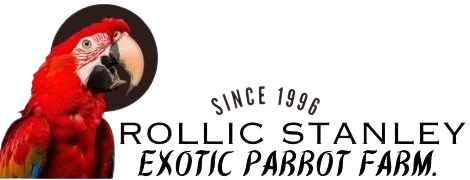Preparing for Successful Incubation
Now that you’ve ensured the authenticity and quality of your Black Palm Cockatoo eggs, it’s time to focus on the crucial process of incubation. Proper preparation and care during this stage are essential for the successful hatching of healthy chicks.
A. Essential equipment
To begin your incubation journey, you’ll need the following equipment:
Incubator with temperature and humidity controls
Egg turner
Thermometer and hygrometer
Candling device
Sterile water for humidity maintenance
Equipment | Purpose |
|---|---|
Incubator | Maintains optimal temperature and humidity |
Egg turner | Prevents embryo from sticking to shell |
Thermometer | Monitors temperature accuracy |
Hygrometer | Measures humidity levels |
Candling device | Checks egg development |
B. Handling emergencies
Be prepared for potential emergencies during incubation:
Power outages: Have a backup generator or battery-operated incubator
Temperature fluctuations: Keep extra thermometers on hand
Humidity issues: Stock up on distilled water and humidity-regulating products
Egg damage: Learn proper techniques for repairing minor cracks
C. Monitoring and care during incubation
Regular monitoring is crucial for successful incubation:
Check temperature and humidity levels twice daily
Candle eggs weekly to track development
Keep detailed records of observations and any adjustments made
Ensure proper ventilation in the incubator
D. Optimal incubation conditions
For Black Palm Cockatoo eggs, maintain the following conditions:
Temperature: 37.2°C to 37.5°C (99°F to 99.5°F)
Humidity: 50-55% for the first 25 days, increasing to 65-70% for the last few days
Turn eggs 3-5 times daily
Incubation period: Approximately 28-30 days
By meticulously preparing for and managing the incubation process, you’ll significantly increase the chances of successfully hatching healthy Black Palm Cockatoo chicks. Next, we’ll explore the legal considerations and regulations surrounding the ownership and breeding of these magnificent parrots.
Legal Considerations and Regulations
When considering the purchase of Black Palm Cockatoo eggs, it’s crucial to understand the legal landscape surrounding these rare and protected birds. Let’s explore the ethical considerations, necessary permits, and international trade laws that govern the acquisition of these eggs.
Ethical Considerations
The trade in exotic bird eggs raises important ethical questions:
Conservation impact
Animal welfare
Sustainable breeding practices
It’s essential to source eggs from reputable breeders who prioritize the well-being of the birds and contribute to conservation efforts.
Permits and Licenses Required
Owning Black Palm Cockatoo eggs often requires specific documentation:
Breeder’s license
Ownership permit
Interstate transport permit (if applicable)
CITES documentation
Permit Type | Purpose | Issuing Authority |
|---|---|---|
Breeder’s License | Allows breeding of protected species | State wildlife agency |
Ownership Permit | Authorizes possession of the eggs/birds | Local wildlife department |
Interstate Transport | Permits movement across state lines | U.S. Fish and Wildlife Service |
CITES Documentation | Ensures compliance with international trade | CITES management authority |
International Trade Laws
The international trade of Black Palm Cockatoo eggs is strictly regulated:
CITES (Convention on International Trade in Endangered Species) governs cross-border movement
Import/export permits are mandatory
Some countries may have complete bans on the trade of these eggs
Before considering an international purchase, thoroughly research the specific laws in both the origin and destination countries. Compliance with these regulations is not only legally required but also crucial for the conservation of this magnificent species.
Post-Hatching Care
Once your Black Palm Cockatoo egg has successfully hatched, it’s crucial to provide proper care for the newborn chick. This section will guide you through the essential aspects of post-hatching care to ensure your new feathered friend thrives.
Health Maintenance
Regular health check-ups are vital for your Black Palm Cockatoo chick. Monitor the following:
Weight gain
Feather development
Beak and claw growth
Overall activity levels
Create a health log to track these factors and consult an avian veterinarian for routine check-ups and vaccinations.
Socialization and Training
Early socialization is key to raising a well-adjusted Black Palm Cockatoo. Consider the following:
Handle the chick gently and frequently
Expose it to various household sounds and experiences
Introduce basic commands and positive reinforcement techniques
Age | Socialization Activity | Training Goal |
|---|---|---|
0-4 weeks | Gentle handling | Trust-building |
4-8 weeks | Exposure to household sounds | Environmental adaptation |
8-12 weeks | Introduction to toys | Play and exploration |
12+ weeks | Basic command training | Obedience and interaction |
Nutritional Requirements
A balanced diet is crucial for your growing Black Palm Cockatoo chick. Provide:
High-quality commercial hand-rearing formula
Gradually introduce soft fruits and vegetables
Offer small amounts of soaked pellets as the chick grows
Ensure clean, fresh water is always available
Setting up a Suitable Habitat
Create a safe and stimulating environment for your chick:
Use a spacious brooder or cage with proper ventilation
Maintain appropriate temperature and humidity levels
Provide soft, clean bedding material
Include various perches of different textures and sizes
Offer a variety of safe toys for mental stimulation
As your Black Palm Cockatoo grows, you’ll need to adjust its living space accordingly. With proper post-hatching care, your chick will develop into a healthy, well-adjusted adult parrot, ready for a lifetime of companionship.
Owning a Black Palm Cockatoo parrot can be a rewarding experience for avian enthusiasts. These majestic birds offer unique companionship and bring joy to their owners. However, acquiring fertile eggs requires careful consideration of authenticity, quality, and legal requirements. Proper incubation techniques and post-hatching care are crucial for successfully raising these magnificent creatures.
Before embarking on this journey, ensure you’re well-prepared for the responsibilities that come with raising Black Palm Cockatoos. Research local regulations, invest in appropriate incubation equipment, and learn about post-hatching care. With the right knowledge and dedication, you can contribute to the conservation of these incredible birds while enjoying the privilege of nurturing them from egg to adulthood.
